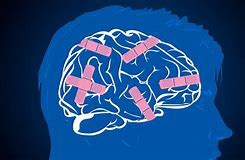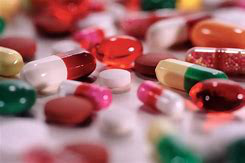Misconceptions about the Treatment of Cystitis
Date:2019-08-03 click:0
Cystitis is a common urinary tract infectious disease, accounting for 50%-70% of the total urinary tract infections, which is caused by a bacterial infection, among which, Escherichia coli is the most common.

The most typical symptoms of cystitis are frequent urination, urgent urination, urodynia, and even urgent incontinence with hematuria and pyuria. Cystitis is more common in women than in men, because the female urethra is shorter than the male urethra and closer to the anus, so it is more vulnerable to E. coli.
Men seldom suffer from the disease, but it still can not be ignored. Males with urinary tract obstruction, such as prostatic hypertrophy or bladder stones, foreign bodies, are also vulnerable to cystitis. Male cystitis is potentially serious because it is usually caused by a potential urinary tract disease, such as obstruction or cancer, or by the spread of an infection elsewhere in the urinary tract. Symptoms include frequent urination, urgency, itching, burning and blood in the urine.
These symptoms above may also be secondary, that is to say, there may be other diseases in the treatment of cystitis, patients should use antibiotics, and receive prompt treatment in order to avoid the transformation into chronic cystitis. At the same time, a comprehensive examination of the urinary system is required, including cystoscopy and intravenous pyelography. Once potential diseases have been identified, they should be treated for potential diseases.
In the treatment of cystitis, drug treatment is the main method, but in the course of drug use, patients often make mistakes. Common treatment errors should be avoided in the course of treatment.

1. Recognize the types of cystitis first
Cystitis is one of the most common diseases of the urinary system and the incidence of cystitis is the highest in women. Patients can be treated with drug therapy for cystitis. Cystitis can be divided into acute and chronic diseases that can be transformed into each other, so when treating cystitis, patients need to distinguish the type of cystitis they suffer from.
Acute cystitis can be delayed to chronic without thorough treatment. Chronic cystitis can be transformed into an acute attack when body resistance is reduced or local pathological factors are aggravated. Acute cystitis is often secondary to kidney infection, prostatic hypertrophy, urethral stricture, bladder stones or foreign bodies and other diseases. While men have a longer urethra, so acute cystitis is generally rare in men, but only when they suffer from prostatitis, the bladder will be affected. Most of the pathogenic bacteria are Escherichia coli, para-Escherichia Coli, Staphylococcus or Streptococcus.
2. The misconception of drug treatment for cystitis
After accidentally suffering from cystitis, some patients blindly adopt a variety of methods to treat them out of the strong desire to seek medical treatment. They are easy to fall into the trap of treatment, which might aggravate the disease. Drug therapy as the main treatment of cystitis, we should be more vigilant to it.
① Take antibiotics immediately
When patients have symptoms like frequent urination and urgent urination, they will go to the drugstore to buy antibiotics immediately. It is noted that those symptoms are sometimes psychotic, some are caused by unstable bladder function, they are not all needed to be treated with antibiotics and other methods of drug treatment of cystitis, it is best to go to the hospital for detection and diagnosis, and then receive symptomatic drug treatment of cystitis under the guidance of doctors.

Patients can also take the conservative natural medicine Diuretic and Anti-inflammatory Pill which has a very great effect in treating chronic cystitis thoroughly without producing any side effects.
② Command the doctors to prescribe the drugs according to their past experience (especially elderly women with recurrent urinary attacks)
It should be noted that this not only causes the doctor's boredom to a certain extent but also often makes the patient ignorant when the condition aggravates and the emergence of drug-resistant bacteria, which ultimately causes great damages to the patient himself.
③ Resist taking urine bacterial culture
Urinary bacterial culture requires disinfection of the urethral orifice. It usually takes about 3 days to get a special culture bottle from the designated department of the hospital, which is really a little troublesome. However, when the efficacy of empirical drug treatment for cystitis is not good, urine bacterial culture can provide pathogenic bacteria types and corresponding drug sensitivity reports to guide clinicians to select sensitive drugs.
④ Stop medication when symptoms alleviate
In the treatment of cystitis, the improvement of symptoms is not equal to cure. Early withdrawal of drugs often causes the resurgence of residual pathogenic microorganisms and increases drug resistance.
In the clinic, two or more kinds of antibiotics are often used to treat recurrent urinary tract infections. It is suggested patients top taking drugs only when the symptoms are alleviated and the urine test is normal for three consecutive times (urine is an important indicator to judge when to discontinue the drug).



